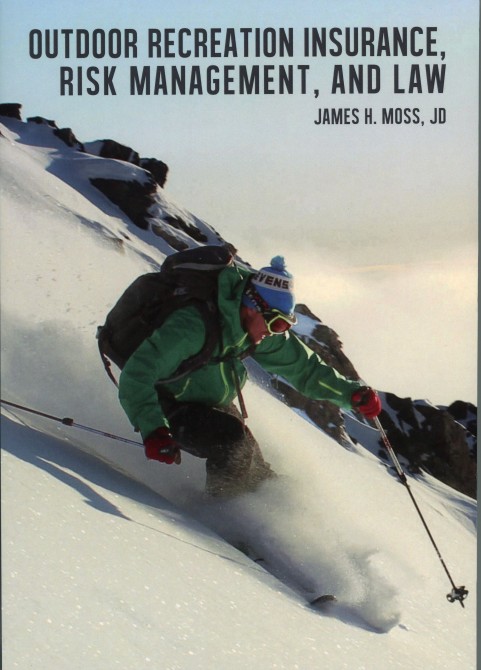Church was not liable for injuries on a canoe trip because the church did not control the land along the river.
Posted: July 6, 2015 Filed under: Florida, Paddlesports | Tags: Canoe Livery, Canoe Trip, Canoeing, Church Group, duty, Guide, Quadriplegic Leave a commentThere can be no negligence if there is no duty; no control means no duty.
State: Florida, Court of Appeal of Florida, First District
Plaintiff: John Clark
Defendant: Lumbermans Mutual Insurance Company and Orange Park Assembly of God
Plaintiff Claims: duty to warn of the shallowness of the water in the beach area, failed to determine in advance the safe and unsafe areas to swim along the St. Mary’s River, and failed to point out proper sites for swimming and diving by the trip members, failed to adequately supervise the canoeing trip
Defendant Defenses: No duty
Holding: for the defendant
Year: 1985
This is a simple and sad case. A church organized a canoe trip through a livery. One of the obvious benefits of a summer canoe trip was swimming and playing in the water. The plaintiff and his friend in their canoe got to a beach first, beached their canoe, and dove into the water.
The friend dove into the water first, and the plaintiff followed in the same direction and dove second. The plaintiff’s dive was different, not a shallow dive. He broke his neck and rendered himself a quadriplegic.
There were no obstructions in the water where the accident occurred and the 21-year-old plaintiff was knowledgeable about water sports and activities.
The plaintiff sued the church and the church’s insurance company. The trial court dismissed the complaint. The canoe livery was not part of this suit, and it is unknown if they were ever defendants. This appeal followed.
Analysis: making sense of the law based on these facts.
The basics of the plaintiff’s claims were the defendant’s church organized the trip. Therefore, they were responsible of all aspects of the trip. That control allegedly included the land along the trip as well as the participants. The plaintiff was 21 and argued the church was in control of him, even though he acted without the church’s knowledge or consent and before the “church” through an assistant minister arrived on the scene.
The court first went through the steps under Florida’s law to determine the requirements to dismiss a case. Motions to dismiss are rarely granted.
In order to prevail on a motion for summary judgment in a negligence action, the defendant must show either no negligence on his part proximately resulting in injury to the plaintiff, or that the plaintiff’s negligence was the sole proximate cause of his injury.
Negligence requires more than the mere occurrence of an accident.
The plaintiff argued that the defendant church was in control of the trip, acting as a guide for the trip, and by allowing him to access the beach was liable as a landowner for the beach. The plaintiff argued defendant’s church constructively possessed the beach.
The court did not accept this argument because the plaintiff arrived at the beach first and before the leader of the trip; the assistant minister who was a paid employee, arrived minutes later. Upon the “church’s” arrival, no one tried to exercise de facto control over the beach or the activity that was argued was control over the beach.
The next argument was the church was liable for not making sure the beach was safe. However, the plaintiff found the beach and dove without the church’s permission. On top of that, there were no obstructions in the river, which would make the beach or river unsafe.
The court also looked at the age of the plaintiff. The plaintiff “possessed sufficient maturity to appreciate the danger, and was not in a dependency relationship with the appellee church.”
Another argument was the one that created concern and interest. “Appellant also maintains that the church assumed a duty of due care by voluntarily acting as a “tour guide” in organizing and conducting the canoeing trip upon which appellant was injured…”
A prior case Florida case on appeal had held a tour service liable for an accident that occurred in a museum because they had the ability to check out where the tour was going. This legal theory is based on “an action undertaken for the benefit of another, even if performed gratuitously, must be performed in accordance with the duty to exercise due care.”
The court held that the tour company was a common carrier in the other decision, and it did not apply in this case because the circumstances did not create a duty on the part of the church. The liability of a common carrier is the highest owed to a party. Common carriers are usually defined as airlines, trains those transportation services where the customer has no ability to protect themselves or control their situation. The court also found:
Even assuming, arguendo, that the church owed a duty of adequate supervision to appellant, the breach of which would render it liable for ordinary negligence, appellant can be barred from recovery if his own action in diving into the shallow water was the sole proximate cause of his accident.
This statement sounds like an assumption of the risk argument but is actually a duty statement. There is no liability, unless there is a duty. There cannot be a duty when one is acting on one’s own. “A plaintiff is barred from recovering damages for loss or injury caused by the negligence of another only when the plaintiff’s negligence is the sole legal cause of the damage.”
So Now What?
Sad when a young man spends the rest of his life in a wheelchair. However, the actions that caused his injuries were solely those of his own doing.
The argument that you are a guide when you undertake to organize a trip was interesting. A lot of this would hinge on how you are accomplishing this, and what you were saying to get the trip put together. It is important when creating outings or trips like this to identify the responsibilities of the parties. Identify in advance, who is responsible for what. You should always identify that adults are always responsible for themselves.
That division of responsibility is best explained in writing and accepted in writing by the customer. That document is normally called a release.
The way you outline the responsibilities you or the organization you represent when you start organizing a trip will create the duties you will owe. The younger the people on the trip, (kids), and the more the people rely on your statements, the greater the chance you will be held to a duty. If you imply you are creating a duty, then you have created a duty and you will be liable for breaching that duty.
The bigger issue is the assigning of a greater duty by the courts based on the type of tour being offered. You need to identify in advance that your actions in moving your customers from one location to the activity are done as part of the activity, not as a common carrier. Your liability in the transportation is incidental to the activity, or you may be held to a higher standard of care for all parts of the activity.
What do you think? Leave a comment.
| Jim Moss is an attorney specializing in the legal issues of the outdoor recreation community. He represents guides, guide services, and outfitters both as businesses and individuals and the products they use for their business. He has defended Mt. Everest guide services, summer camps, climbing rope manufacturers; avalanche beacon manufacturers, and many more manufacturers and outdoor industries. Contact Jim at Jim@Rec-Law.us |
Jim is the author or co-author of eight books about legal issues in the outdoor recreation world; the latest is Outdoor Recreation Insurance, Risk Management,
To see Jim’s complete bio go here and to see his CV you can find it here. To find out the purpose of this website go here.
If you are interested in having me write your release, download the form and return it to me.
Connect
If you like this let your friends know or post it on FB, Twitter, or LinkedIn
Facebook Page: Outdoor Recreation & Adventure Travel Law
LinkedIn https://www.linkedin.com/in/recreationlaw/
Threads https://www.threads.net/@recreation_law
X https://twitter.com/RecreationLaw
Email: Jim@Rec-Law.US
By Recreation Law Rec-law@recreation-law.com James H. Moss
@2015-2023 Summit Magic Publishing, LLC
G-YQ06K3L262
#AdventureTourism, #AdventureTravelLaw, #AdventureTravelLawyer, #AttorneyatLaw, #Backpacking, #BicyclingLaw, #Camps, #ChallengeCourse, #ChallengeCourseLaw, #ChallengeCourseLawyer, #CyclingLaw, #FitnessLaw, #FitnessLawyer, #Hiking, #HumanPowered, #HumanPoweredRecreation, #IceClimbing, #JamesHMoss, #JimMoss, #Law, #Mountaineering, #Negligence, #OutdoorLaw, #OutdoorRecreationLaw, #OutsideLaw, #OutsideLawyer, #RecLaw, #Rec-Law, #RecLawBlog, #Rec-LawBlog, #RecLawyer, #RecreationalLawyer, #RecreationLaw, #RecreationLawBlog, #RecreationLawcom, #Recreation-Lawcom, #Recreation-Law.com, #RiskManagement, #RockClimbing, #RockClimbingLawyer, #RopesCourse, #RopesCourseLawyer, #SkiAreas, #Skiing, #SkiLaw, #Snowboarding, #SummerCamp, #Tourism, #TravelLaw, #YouthCamps, #ZipLineLawyer, Canoe Livery, Church Group, Canoe Trip, Canoeing, Quadriplegic, Duty, Guide,




